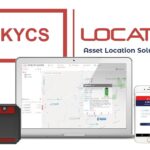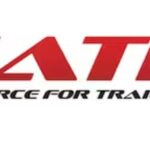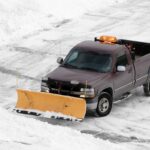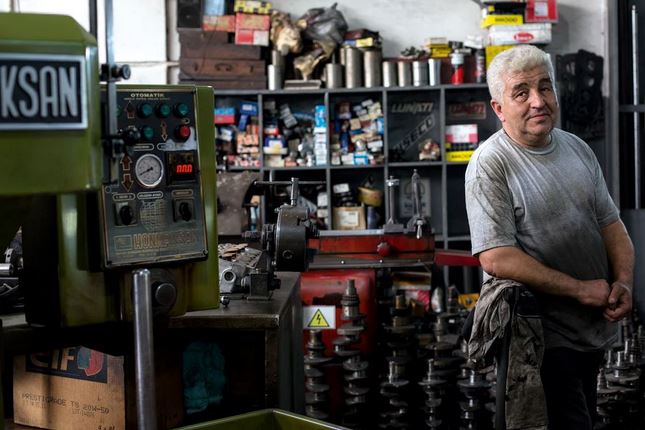Auto Shops; Tire-Changing Season in Canada
The tire-changing season can begin as early as October, so you should make your customers aware that, if they live in an area that is prone to snow and ice in the winter, they should consider a seasonal tire change even if not required by law; it could even potentially save customers on insurance.
Jocova Financing, October 5, 2022
As an auto shop the approach of every winter, you need to stock up on winter tires, ready for the influx of customers who want to change out their summer tires. The tire-changing season can begin as early as October, so you should make your customers aware that, if they live in an area that is prone to snow and ice in the winter, they should consider a seasonal tire change even if not required by law; it could even potentially save customers on insurance.
Tire shops should be aware of the necessity of alerting their customers to the value of installing winter tires, which will ensure that they have the best traction when driving in winter and cold weather. But how do dealers emphasize the importance of winter tires? Most customers don’t think they need special tires installed on their cars ready for winter but they’re wrong, and it’s up to you to educate them. You should reach out to your customers as soon as the weather gets to an average temperature of 7 degrees C, and educate them on the necessity of winter tires in order to keep them safe. Many customers will be reluctant to purchase four new tires because of the cost involved, but once they are educated and see the value, they begin to realize they are a necessity.
The winter tire market is huge, and recommending the correct tires can be a challenge. Both dealers. and customers need to do their homework and figure out their needs; if they’re driving to work or shopping locally in the family sedan or SUV for most of the winter, then there’s no need for them to shell out hundreds of dollars for superior winter tires. However, a high-performance car may need exactly those specialized tires to operate safety while maintaining performance.
What’s the Difference Between Summer, Winter and All-Season Tires and What Your Customers Should Know
Summer tires usually perform best when the temperature is no lower than 7 degrees C and have large tread blocks for the best traction in warm and/or wet conditions. However, their performance is impacted when the temperature drops below 7 degrees C as the rubber hardens and the tires lose their grip, and this can become dangerous.
Winter tires are needed when the temperature falls below an average of 7 degrees C. They have a deeper tread and also have very narrow cuts (sipes) on the tread, which increases traction and stability. The rubber used on these tires is also different from that used to make summer tires, and provides a better grip in cold weather, even if the car isn’t being driven on snow or ice. Since the rubber on winter tires is also softer, if used in warmer weather or all year round, they will tend to wear out quicker.
All-season tires are just that; they provide adequate performance in all seasons – even on roads that may have a light dusting of snow. Most new cars are equipped with them but they probably will not give you the same handling control of specialized summer or winter tires.
Have the Correct Equipment for your Auto Shop to Operate Effective, Efficiently, and Profitably
When considering seasonal tire replacement work, auto shops need to have the correct automotive equipment for their garage such as:
• Air compressor
• Phone system
• Computer
• Hoists and lifts
• Welding equipment
• Tire changer
• Wheel balancer
• Security system
• Diagnostic equipment
• Alignment machine
• Paint booths
Not all mechanic shops will have the necessary tools available for the replacement of tires, but there are options available for equipment financing or equipment leasing with easy monthly or season payment options which enable to get the equipment you need to better serve and keep your customers. Once you have achieved your customer base, you will want to keep them coming back by offering the best service you can provide. This should include reasonable pricing; hiring reliable and knowledgeable mechanics; offering a warm, clean and secure waiting area where customers can wait while their tires are being changed, with free hot beverages (and making sure that that particular area is clean and well-stocked) and a TV; and superlative, friendly customer service staff. For longer or multi-day service and repairs, a shuttle service is recommended to further service customers.
Once you have sold and installed the customer’s new tires, a tire shop should be prepared to offer incentives to the customer in the form of loyalty and retention programs; such as, four tires for the cost of three installed tires; perhaps discounts on future services, like oil changes, air conditioner checks in time for the warm weather, or a free car wash. All of these make a difference in the way a customer views his or her auto shop – and most people do have a favorite auto shop to take their car to when it needs other services so the more appealing you create yours the better.
You should have a great customer service person who is prepared to answer questions about the right time to change to winter tires, and whether or not you can drive with them all year – you can’t because they are made from a softer rubber which will create problems with performance and handling when the temperature rises.
Customers may ask if their all-season tires are good for winter – they’re better than summer tires but not suitable for really cold weather, despite many new cars being fitted with them. Depending on where you live, and how cold it gets, a good rule of thumb is that if you’re driving in an average cold temperature of 7 degrees C or less, you will need winter tires.
The best all-season tires for snow are:
Michelin Primacy MXM4 is recommended for its traction and performance in snow.
Continental Extreme Contact, has long tread life, traction grooves to stop hydroplaning, and a reasonable price.
BFGoodrich g-Force comp-2 offers extra traction in deep snow, thanks to its super-large tread blocks and agility in snow.
Yokohama Avid Touring is a good tire with a reasonable price tag, although it might not be great in deep snow.
Hankook Ventus V2 has great reviews, especially where the price is concerned. Handling is good, as is durability. The only drawback is that there is some pavement noise.
Other Posts

Equipment Financing for Small Business Owners
Read More
How Market Conditions Shape Equipment Leasing Rates
Read More
Factors Influencing Lease and Equipment Financing Rates for Manufacturing Equipment
Read More
Exploration of How Interest Rate Changes Shape Business Equipment Financing For Small Business
Read More
The Crucial Role of Financial Wellness for Small Businesses
Read More
Maximize Your Savings: New Tax Deduction Allows 100% Write-Off for Equipment Purchases in 2023!
Read More
Protect Your Equipment; Theft Protection
Read More
INDUSTRY NEWS: NATDA Partners with Jocova Financial to Enhance Trailer Financing Opportunities in Canada
Read More




